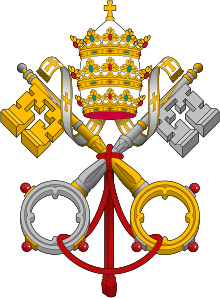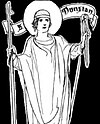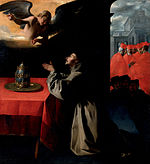Introduction The Catholic Church, also known as the Roman Catholic Church, is the largest Christian church, with 1.28 to 1.39 billion baptized Catholics worldwide as of 2024. It is among the world's oldest and largest international institutions, and has played a prominent role in the history and development of Western civilization. The church consists of 24 sui iuris churches, including the Latin Church and 23 Eastern Catholic Churches, which comprise almost 3,500 dioceses and eparchies located around the world. The pope, who is the bishop of Rome, is the chief pastor of the church. The Diocese of Rome, known as the Holy See, is the central governing authority of the church. The administrative body of the Holy See, the Roman Curia, has its principal offices in Vatican City, a small independent city-state and enclave within the Italian capital city of Rome, of which the pope is head of state. The core beliefs of Catholicism are found in the Nicene Creed. The Catholic Church teaches that it is the one, holy, catholic and apostolic church founded by Jesus Christ in his Great Commission, that its bishops are the successors of Christ's apostles, and that the pope is the successor to Saint Peter, upon whom primacy was conferred by Jesus Christ. It maintains that it practises the original Christian faith taught by the apostles, preserving the faith infallibly through scripture and sacred tradition as authentically interpreted through the magisterium of the church. The Roman Rite and others of the Latin Church, the Eastern Catholic liturgies, and institutes such as mendicant orders, enclosed monastic orders and third orders reflect a variety of theological and spiritual emphases in the church. Of its seven sacraments, the Eucharist is the principal one, celebrated liturgically in the Mass. The church teaches that through consecration by a priest, the sacrificial bread and wine become the body and blood of Christ. The Virgin Mary is venerated as the Perpetual Virgin, Mother of God, and Queen of Heaven; she is honoured in dogmas and devotions. Catholic social teaching emphasizes voluntary support for the sick, the poor, and the afflicted through the corporal and spiritual works of mercy. The Catholic Church operates tens of thousands of Catholic schools, universities and colleges, hospitals, and orphanages around the world, and is the largest non-government provider of education and health care in the world. Among its other social services are numerous charitable and humanitarian organizations. (Full article...) Selected article
 The Knights of Columbus is the world's largest Roman Catholic fraternal service organization. Founded in the United States in 1882, it is named in honor of Christopher Columbus and dedicated to the principles of Charity, Unity, Fraternity, and Patriotism. There are more than 1.7 million members in 14,000 councils, with nearly 200 councils on college campuses. Membership is limited to "practical Catholic" men aged 18 or older. Councils have been chartered in the United States, Canada, Mexico, the Caribbean, Central America, the Philippines, Guam, Saipan, and most recently in Poland. The Knights' official junior organization, the Columbian Squires, has over 5,000 Circles. All the Order's ceremonials and business meetings are restricted to members though all other events are open to the public. A promise not to reveal any details of the ceremonials except to an equally qualified Knight is required to ensure their impact and meaning for new members; an additional clause subordinates the promise to that Knight's civil and religious duties.
Selected image
 Credit: Detroit Publishing Co.
A ca. 1890–1900 photochrom of St. Alexander's Church (Kościół św. Aleksandra in Polish), a Catholic church in Warsaw, Poland, before its destruction in World War II. After the war it was rebuilt on a smaller scale. Selected biography
 Dunstan (c.909–19 May 988) was an abbot of Glastonbury, a bishop of Worcester, a bishop of London, and an archbishop of Canterbury who was later canonized as a saint. His work restored monastic life in England and reformed the English Church. His 11th century biographer, Osbern, himself an artist and scribe, states that Dunstan was skilled in "making a picture and forming letters", as were other clergy of his age who reached senior rank. Dunstan served as an important minister of state to several English kings. He was the most popular saint in England for nearly two centuries, having gained fame for the many stories of his greatness. Adding to Dunstan's myth was his legendary cunning in dealing with the Devil. As a young boy, Dunstan studied under the Irish monks who then occupied the ruins of Glastonbury abbey.
Did you know...
Related portalsFeast Day of July 15
The seventh Minister General of the Order of Friars Minor, he also served for a time as Bishop of Albano. He was canonised on 14 April 1482 by Pope Sixtus IV and declared a Doctor of the Church in 1588 by Pope Sixtus V, becoming known as the "Seraphic Doctor" (Latin: Doctor Seraphicus). His feast day is 15 July. (Full article...)
Selected quote
News
SubcategoriesTopics
The Holy Bible:
Particular Churches (grouped by liturgical rite):
Things you can do
External resourcesWikiProjectsAssociated WikimediaThe following Wikimedia Foundation sister projects provide more on this subject:
Discover Wikipedia using portals |

































